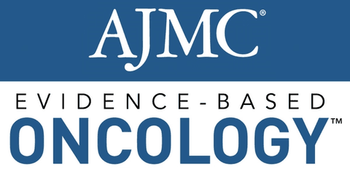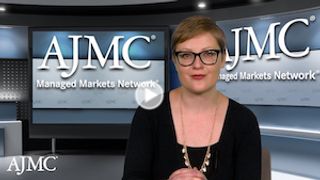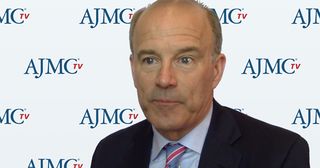
Insurance
Latest News
Latest Videos

CME Content
More News

Gene therapy has the promise of being one and done, but it isn’t always that way for all patients, which leaves questions about where these therapies fit in the commercial landscape, said Charles C. Wykoff, MD, PhD, of Retina Consultants of Texas and the Blanton Eye Institute at Houston Methodist Hospital.

A study assessing factors that may determine a commercial health plan’s likelihood of covering a biosimilar found that biosimilars that are cancer therapies, used to treat children, indicated for highly prevalent conditions, or only competing against the originator were more likely to have coverage restrictions.

This quantitative and qualitative analysis highlights differences in prior authorization requirements for migraine drugs from nearly 50 managed care organizations and summarizes broad types of criteria used.

Estimated rates of lung cancer screening with low-dose CT were extremely low among eligible patients across insurance types in 2017, with rates varying between patient demographics.

Payment models that align financial incentives of payers, providers, and patients can mitigate spending growth in thoughtful ways, but the details of the models matter.

Equity has to be made front and center in conversations about value assessment, otherwise all stakeholders will continue waiting for someone else to make the first move, said one panelist at the Value-Based Insurance Design Summit.

A ruling by District Judge Reed O’Connor on March 30 called the future of preventive care access into question.

Under preferred pharmacy networks, unsubsidized Part D beneficiaries faced substantial incentives and moderately switched toward preferred pharmacies, whereas subsidized beneficiaries were insulated and demonstrated little switching.

Panelists at the Value-Based Insurance Design Summit discussed research and reforms to address the high cost of medications and the impact it has on equitable access to treatment.

Panelists at the Value-Based Insurance Design Summit discussed ways their organizations are looking to create a better benefit design to promote health equity and address known disparities.

Health plans use data to decide on quality improvement initiatives. Having a dashboard that characterizes how equitably plans are serving their enrollees would promote health equity.

Utilizing real-world evidence that applies to the specific care needs of certain patient populations can promote timely decision-making among payers and providers on the use of effective cancer therapies available on the market, said panelists at the 2022 Patient-Centered Oncology Care® (PCOC) meeting.

In this column, a health insurance executive discusses 2 ways to address rising inflation, including moving past the traditional fee-for-service payment model.

The government is allowing Medicare Advantage (MA) plans to delay returning hundreds of millions of dollars or more in government overpayments; a proposed new extension of the Affordable Care Act (ACA) might make birth control coverage more accessible for certain private insurance plans; a study found that students lost around 33% of their school year because of the pandemic’s educational barriers and are struggling to regain that lost time.

The Biden administration has said it would give 60 days notice before ending the public health emergency, which was set to end April 11, and the national emergency was set to end March 1.

Adults with diabetes who were forced to switch from an employer-sponsored health plan to a high-deductible health plan (HDHP) were 25% more likely to require an emergency department (ED) or hospital visit for hyperglycemia, but not for hypoglycemia, than those who did not switch plans.

Jodi Fenner, senior director at Elevance Health, speaks on the key themes she presented during her session at the 2023 Health Equity Summit in San Diego, California, titled, "Promoting Health Equity through Primary Care."

Coverage of our peer-reviewed research and news reporting in the health care and mainstream press.

A session at the 2022 American Society of Health-System Pharmacists Midyear Clinical Meeting & Exhibition reviewed some trends in the 340B drug pricing programs and Medicaid.

In a recent study, it was found that individuals with public health insurance had worse health competence beliefs, reducing transition goals, expectations, and beliefs.

The groups who told researchers they would be more likely to skip additional testing had lower levels of income or education and were more likely to be on Medicaid or be uninsured, among other factors.

A survey conducted by the Health Care Payment Learning and Action Network found that “more plans are using incentives in value-based care arrangements to improve health equity.”

While those with Medicaid insurance were more likely to have an insurance transition before or after giving birth, those with private insurance were also found to have insurance changes.

Joseph Alvarnas, MD, vice president of government affairs at City of Hope and chief clinical adviser of AccessHope in Duarte, California, spoke on how the California Cancer Care Equity Act will allow oncologists to escalate the care of patients with advanced cancers toward established centers that can better meet their needs, as well as implications from the decision to exclude genomic testing coverage in the bill.

An analysis of Medicaid coverage found that Mississippi was the only state not to provide coverage for human papillomavirus (HPV) vaccination in adults aged 27 to 45 years.
















